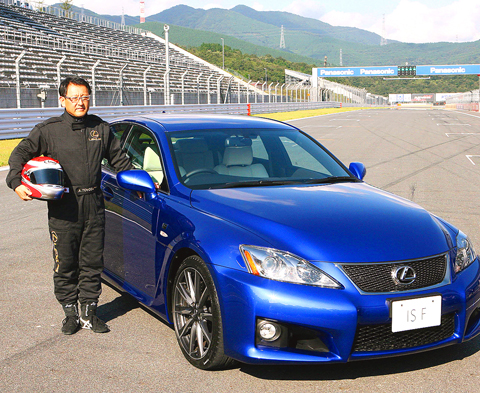Toyota Motor yesterday named Akio Toyoda as its new president, turning to the grandson of its founder to rescue the company from its biggest ever crisis.
Toyoda, currently an executive vice president, will take the reins of Japan’s biggest automaker in June, replacing Katsuaki Watanabe, who will become vice chairman. Fujio Cho will keep the post of chairman.
Toyoda, 52, has long been groomed for the top job. He will be the first member of the founding family in 14 years to become president, taking over at a crucial time for the company.

PHOTO: AFP
Toyota is famed worldwide for its efficient production methods but expects its first-ever operating loss this financial year due to the economic crisis.
Toyota hopes that the founding family scion can unite the company during the current crisis, which is forcing it to slash jobs and production, said Mamoru Kato, an auto analyst at Tokai Tokyo Research Center.
“The appointment will also promote the rejuvenation of the company, enabling management to rebuild its growth strategy. He is likely to correct the company’s expansion policy and draw up a new path to follow,” Kato said.
The automaker’s new president is the grandson of Kiichiro Toyoda — who founded the automaker in 1937 — and the son of former president Shoichiro Toyoda.
Akio Toyoda became a board member in 2000 and was made an executive vice president in 2005, taking charge of Japanese sales and overseas operations.

Seven people sustained mostly minor injuries in an airplane fire in South Korea, authorities said yesterday, with local media suggesting the blaze might have been caused by a portable battery stored in the overhead bin. The Air Busan plane, an Airbus A321, was set to fly to Hong Kong from Gimhae International Airport in southeastern Busan, but caught fire in the rear section on Tuesday night, the South Korean Ministry of Land, Infrastructure and Transport said. A total of 169 passengers and seven flight attendants and staff were evacuated down inflatable slides, it said. Authorities initially reported three injuries, but revised the number

One of Japan’s biggest pop stars and best-known TV hosts, Masahiro Nakai, yesterday announced his retirement over sexual misconduct allegations, reports said, in the latest scandal to rock Japan’s entertainment industry. Nakai’s announcement came after now-defunct boy band empire Johnny & Associates admitted in 2023 that its late founder, Johnny Kitagawa, for decades sexually assaulted teenage boys and young men. Nakai was a member of the now-disbanded SMAP — part of Johnny & Associates’s lucrative stable — that swept the charts in Japan and across Asia during the band’s nearly 30 years of fame. Reports emerged last month that Nakai, 52, who since

EYEING A SOLUTION: In unusually critical remarks about Russian President Vladimir Putin, US President Donald Trump said he was ‘destroying Russia by not making a deal’ US President Donald Trump on Wednesday stepped up the pressure on Russian President Vladimir Putin to make a peace deal with Ukraine, threatening tougher economic measures if Moscow does not agree to end the war. Trump’s warning in a social media post came as the Republican seeks a quick solution to a grinding conflict that he had promised to end before even starting his second term. “If we don’t make a ‘deal,’ and soon, I have no other choice but to put high levels of Taxes, Tariffs, and Sanctions on anything being sold by Russia to the United States, and various other

‘BALD-FACED LIE’: The woman is accused of administering non-prescribed drugs to the one-year-old and filmed the toddler’s distress to solicit donations online A social media influencer accused of filming the torture of her baby to gain money allegedly manufactured symptoms causing the toddler to have brain surgery, a magistrate has heard. The 34-year-old Queensland woman is charged with torturing an infant and posting videos of the little girl online to build a social media following and solicit donations. A decision on her bail application in a Brisbane court was yesterday postponed after the magistrate opted to take more time before making a decision in an effort “not to be overwhelmed” by the nature of allegations “so offensive to right-thinking people.” The Sunshine Coast woman —